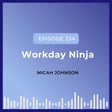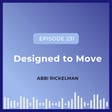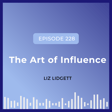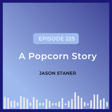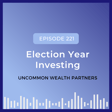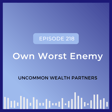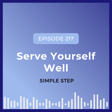
Mill Street Mocha: Interview with Brittany Todd
Brittany Todd is a dedicated entrepreneur and the current owner of Mill Street Mocha in Decorah, Iowa. Brittany's career journey spans from professional photography to coffee shop ownership. She and her husband, Nathaniel, also own the beloved local ice cream shop, Sugar Bowl. Brittany is deeply involved in her community, focusing on delivering personalized service and forging genuine connections. She is also the brain behind the Reset Business Conference, aimed at empowering rural entrepreneurs with valuable insights and tools.
Episode Summary:
In this engaging episode of the Uncommon Wealth Podcast, host Phillip Ramsey welcomes Brittany Todd, the dynamic owner of Mill Street Mocha and co-owner of Sugar Bowl ice cream shop. Brittany candidly shares her journey from entrepreneurship in photography to successfully managing multiple local businesses. She explores the importance of being genuinely connected to the community and the personal fulfillment derived from operating small businesses. This episode is packed with insightful stories, reflecting Brittany's passion for creating a service-oriented business environment.
Brittany discusses the unexpected but rewarding path to owning Mill Street Mocha, shedding light on the complexities and lessons learned from business acquisitions. With keywords like "entrepreneurship," "community engagement," "business acquisition," and "work-life balance," this episode serves as a treasure trove of practical advice for aspiring entrepreneurs. Brittany also highlights the significance of making incremental changes, emphasizing that understanding and empathy towards staff can lead to sustainable business growth. Key themes of resilience, community connection, and strategic planning are woven throughout the conversation.
Key Takeaways:
- Building and maintaining a business significantly benefits from genuine community engagement and personalized customer service.
- Entrepreneurship often involves unexpected opportunities and requires the ability to adapt and learn on the go.
- The importance of having systems and processes in place to prevent burnout and ensure business sustainability.
- Involving and understanding the needs of staff members can greatly enhance operational efficiency and morale.
- For those contemplating a career change or business venture: Small incremental steps and doing thorough research can pave the way for a successful transition.
Notable Quotes:
- "I've never been hired for a real job. If nobody will hire me, I'll just create one."
- "Nothing can make up for lost time, relationships, people. There is, you don’t take it with you when you go."
- "It's a vibe about that community within that building."
- "You can give a gift card to anyone who asks for one, but is that really what their organization needs? Maybe they actually need something completely different."
- "Nothing is going to be your vision, but it's gonna somehow end up better than that."
Resources:
- Brittany Todd on Instagram
- Mill Street Mocha - Brittany's website
- Reset Business Conference - More information on Brittany's conference aimed at fostering entrepreneurial growth in northeast Iowa.
To capture the full depth of Brittany Todd's entrepreneurial journey and glean actionable insights from her experiences, listen to the full episode. Stay tuned for more inspiring dialogues on the Uncommon Wealth Podcast as we continue to bring you closer to individuals who are living life on their own terms.


